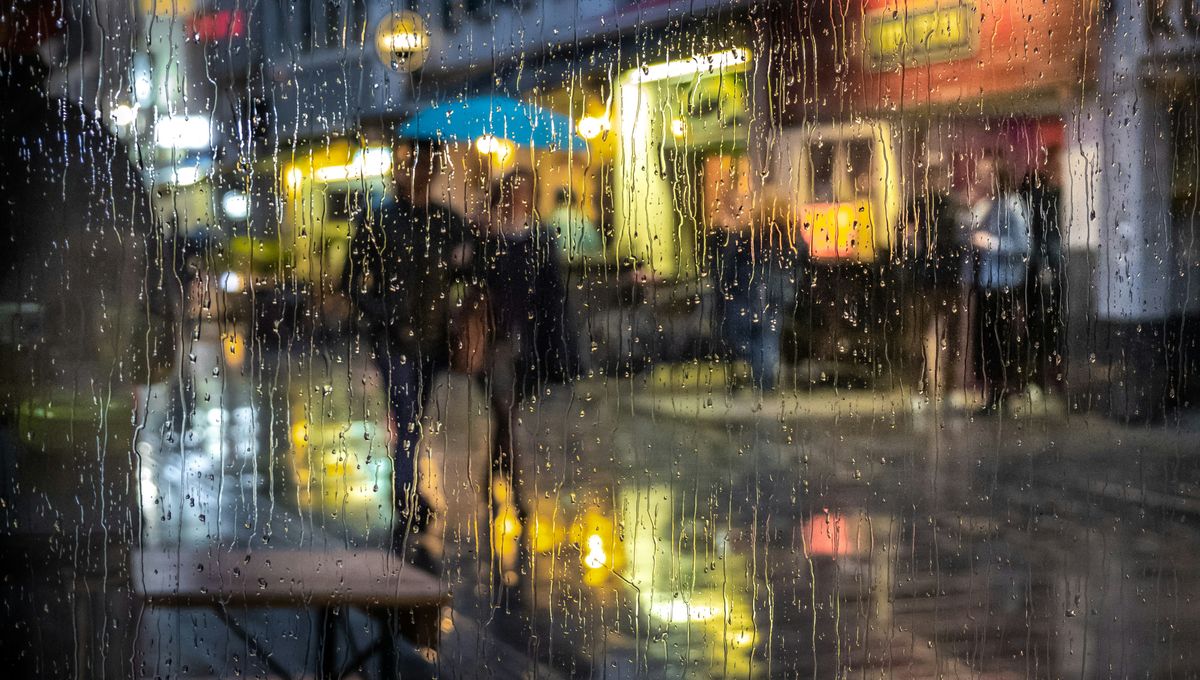
Just your luck. After a week of fair weather from Monday to Friday, the weekend arrives and it’s gray, wet, and miserable. If you’ve ever noticed this trend of gloomier weekends, you’re not imagining it; Saturdays and Sundays can show slightly different weather patterns compared to the rest of the week.
This might seem surprising, especially since the seven-day week is a human invention, not governed by natural cycles like the day, month, or year. Yet, a growing body of evidence suggests that temperature, rainfall, wind, and cloud cover may follow weekly rhythms in some regions.
The leading theory is that it’s driven by a buildup of air pollution during the workweek, largely from road traffic and industrial activity. By the weekend, pollution levels have peaked and then quickly drop, which can alter cloud properties and influence the likelihood of rain. This sudden reduction in emissions from slower-paced weekend activity may also destabilize local weather systems, leading to noticeable shifts in weather patterns.
This phenomenon is known as the “weekend effect.” A 1998 study published in the journal Nature found consistent weekly cycles in air pollution, rainfall, and tropical cyclones along the coastal Atlantic region of the US. Pollution levels are lowest early in the week and peak later, aligning with increased rainfall on weekends. They also found that tropical cyclones tended to be muted towards the end of the week too.
However, the expression of the effect can vary from region to region. Some parts of the US are more likely to experience drier weather on weekends, while parts of Europe tend to see more rainfall as the weekend approaches.
Temperature is another way to see the effect in action. Weather stations in the US, Mexico, Japan, and China have documented a weekly cycle in daily temperature ranges. They originally looked into whether it was associated with the 28-day lunar cycle, but found no evidence.
Instead, the most likely explanation is aerosol pollution, which changes cloud properties on very short timescales. These changes can reduce solar radiation during the day (which lowers maximum temperatures) and trap heat at night (raising minimum temperatures), ultimately narrowing the daily temperature range on Saturday and Sunday.
Researchers have even observed that hailstorms and tornadoes in the eastern US occur more frequently during the workweek, with noticeably less activity over the weekend. They speculate that these violent weather events may be intensified by polluted, moisture-rich air masses, which are more likely to develop between Monday and Friday.
Still, not all scientists are convinced. Some argue that the current evidence is inconclusive and that the observed patterns may be coincidental rather than causal. Weather systems are incredibly complex, shaped by countless interrelated variables, which makes it difficult to pick out the effects of human activity over such short timescales. And as pattern-seeking creatures, we’re often quick to spot meaning in the noise (even where none exists).
While the idea that our modern routines might subtly shape the skies is compelling, researchers say more data and deeper analysis are needed to truly understand whether these weekly rhythms are a consequence of humans or a strange coincidence.
Source Link: The "Weekend Effect" Of Weather: Is It Rainier On Saturdays And Sundays?